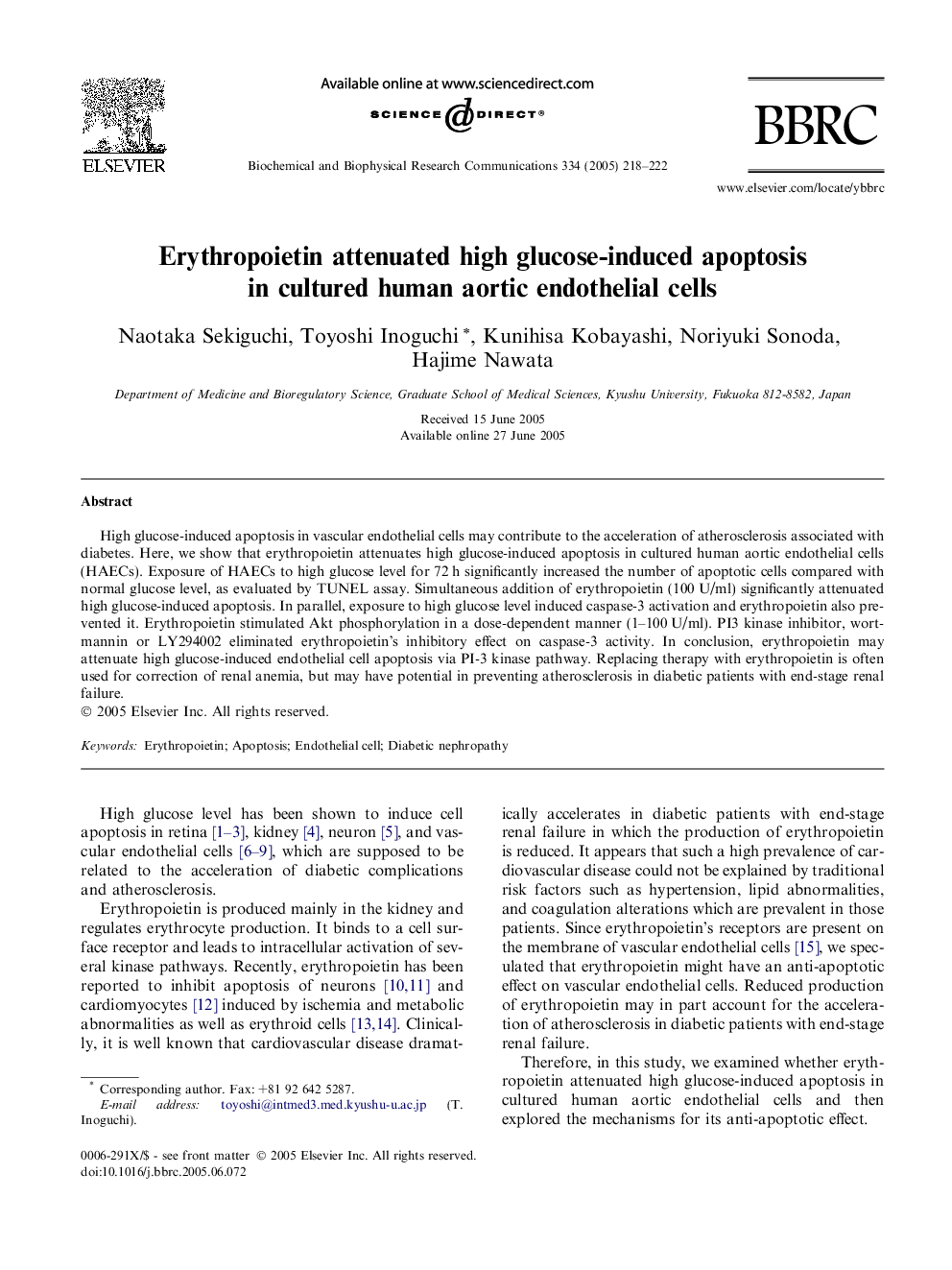| Article ID | Journal | Published Year | Pages | File Type |
|---|---|---|---|---|
| 10769496 | Biochemical and Biophysical Research Communications | 2005 | 5 Pages |
Abstract
High glucose-induced apoptosis in vascular endothelial cells may contribute to the acceleration of atherosclerosis associated with diabetes. Here, we show that erythropoietin attenuates high glucose-induced apoptosis in cultured human aortic endothelial cells (HAECs). Exposure of HAECs to high glucose level for 72Â h significantly increased the number of apoptotic cells compared with normal glucose level, as evaluated by TUNEL assay. Simultaneous addition of erythropoietin (100Â U/ml) significantly attenuated high glucose-induced apoptosis. In parallel, exposure to high glucose level induced caspase-3 activation and erythropoietin also prevented it. Erythropoietin stimulated Akt phosphorylation in a dose-dependent manner (1-100Â U/ml). PI3 kinase inhibitor, wortmannin or LY294002 eliminated erythropoietin's inhibitory effect on caspase-3 activity. In conclusion, erythropoietin may attenuate high glucose-induced endothelial cell apoptosis via PI-3 kinase pathway. Replacing therapy with erythropoietin is often used for correction of renal anemia, but may have potential in preventing atherosclerosis in diabetic patients with end-stage renal failure.
Related Topics
Life Sciences
Biochemistry, Genetics and Molecular Biology
Biochemistry
Authors
Naotaka Sekiguchi, Toyoshi Inoguchi, Kunihisa Kobayashi, Noriyuki Sonoda, Hajime Nawata,
